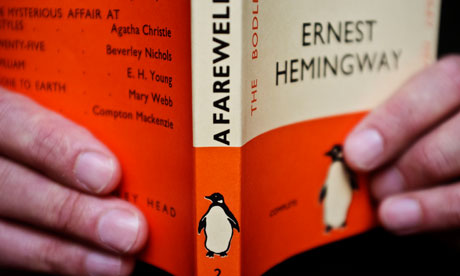The new Penguin Random House will control a quarter of world book publishing, and this has many in the industry, from writers and agents to smaller publishers, worried

Penguin’s merger with Random House is one of the biggest events in publishing since the arrival of Amazon. Photograph: Sarah Lee
This year's longlist for the Man Booker prize drew the usual gripes about star writers being "snubbed" in favour of the "obscure" and unknown, but the judges hailed it as the most diverse selection ever.
"These 13 outstanding novels range from the traditional to the experimental, from the first century AD to the present day, from 100 pages to 1,000, and from Shanghai to Hendon," said Robert Macfarlane, chair of this year's judges.
It was a good list for the big publishing houses, which have in previous years been eclipsed by smaller independent rivals. Unexploded by Alison MacLeod – published by Penguin imprint Hamish Hamilton and set in 1940s Brighton, when a German invasion appeared imminent – is an early favourite, even before its publication in September. The independents have not done badly, however, with Granta, Bloomsbury and tiny Highland publisher Sandstone Press also on the list.
But this "wonderfully various" list comes as British publishing – all Man Booker prize entrants must be published in the UK – becomes a little less diverse, following the mega-merger, completed earlier this month, between Penguin and Random House.
The giant company, known as Penguin Random House, will control 25% of the world book business. With a back catalogue ranging from 19th-century master stylist Henry James to kinky novelist EL James, and nearly 250 separate imprints, Penguin Random House will publish 5,000 new titles a year.
More
"These 13 outstanding novels range from the traditional to the experimental, from the first century AD to the present day, from 100 pages to 1,000, and from Shanghai to Hendon," said Robert Macfarlane, chair of this year's judges.
It was a good list for the big publishing houses, which have in previous years been eclipsed by smaller independent rivals. Unexploded by Alison MacLeod – published by Penguin imprint Hamish Hamilton and set in 1940s Brighton, when a German invasion appeared imminent – is an early favourite, even before its publication in September. The independents have not done badly, however, with Granta, Bloomsbury and tiny Highland publisher Sandstone Press also on the list.
But this "wonderfully various" list comes as British publishing – all Man Booker prize entrants must be published in the UK – becomes a little less diverse, following the mega-merger, completed earlier this month, between Penguin and Random House.
The giant company, known as Penguin Random House, will control 25% of the world book business. With a back catalogue ranging from 19th-century master stylist Henry James to kinky novelist EL James, and nearly 250 separate imprints, Penguin Random House will publish 5,000 new titles a year.
More